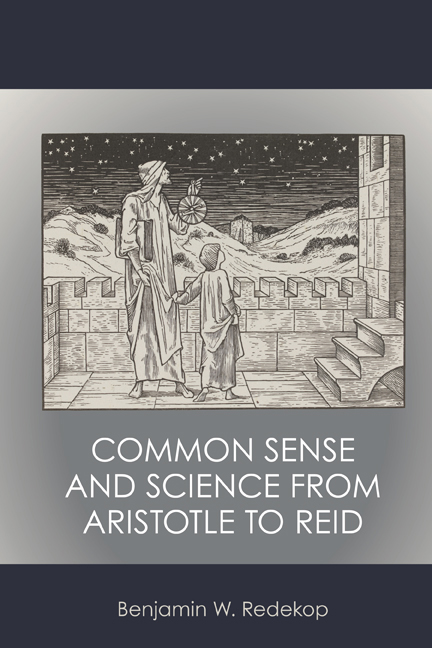Book contents
- Frontmatter
- Contents
- Acknowledgments
- Introduction
- 1 Common Sense and Scientific Thinking before Copernicus
- 2 The Challenge of Modern Science and Philosophy
- 3 Common Notions, Sens Commun: Herbert of Cherbury and Renè Descartes
- 4 Hobbes, Locke, and Innatist Responses to Skepticism and Materialism
- 5 Common Sense in Early Eighteenth-Century Thought
- 6 Common Sense and Moral Sense: Buffier, Hutcheson, and Butler
- 7 Common Sense and the Science of Man in Enlightenment Scotland: Turnbull and Kames
- 8 Common Sense, Science, and the Public Sphere: The Philosophy of Thomas Reid
- Epilogue
- Notes
- Index
7 - Common Sense and the Science of Man in Enlightenment Scotland: Turnbull and Kames
Published online by Cambridge University Press: 07 November 2020
- Frontmatter
- Contents
- Acknowledgments
- Introduction
- 1 Common Sense and Scientific Thinking before Copernicus
- 2 The Challenge of Modern Science and Philosophy
- 3 Common Notions, Sens Commun: Herbert of Cherbury and Renè Descartes
- 4 Hobbes, Locke, and Innatist Responses to Skepticism and Materialism
- 5 Common Sense in Early Eighteenth-Century Thought
- 6 Common Sense and Moral Sense: Buffier, Hutcheson, and Butler
- 7 Common Sense and the Science of Man in Enlightenment Scotland: Turnbull and Kames
- 8 Common Sense, Science, and the Public Sphere: The Philosophy of Thomas Reid
- Epilogue
- Notes
- Index
Summary
Previous chapters have shown how a variety of European thinkers—including Herbert of Cherbury, René Descartes, Henry Lee, G. W. Leibniz, and Henry More, among others—were beginning to explore and develop the idea that human beings intuitively perceive certain notions, ideas, truths, or principles that condition our experience and make moral, scientific, and religious knowledge possible. We have seen how Claude Buffier was developing a philosophy of sens comun in eighteenth-century France and how the seeds of a philosophy of common sense were being planted in the British Isles by moral philosophers like Francis Hutcheson in Ireland and Scotland, and the Third Earl of Shaftesbury and Bishop Butler in England, where the figure of “common sense” as a term of popular culture was emerging in its own right.
Now we turn our attention to Enlightenment Scotland, where a fullyfledged philosophy of common sense, with strong links to modern science and the scientific method, began to emerge: first in the works of George Turnbull and Henry Home, Lord Kames, before coming to full fruition in the work of Thomas Reid. Although previous European thinkers had been making similar arguments and observations, it was in Scotland that a coherent and developed “school” of common-sense philosophy grew and matured, extending deep into the nineteenth century and far beyond the shores of Scotland.
Hutcheson, Turnbull, Kames, and Reid were a subset of thinkers within the larger Scottish Enlightenment, which has come to assume a place in modern intellectual history that rivals the French Enlightenment. According to Donald Withrington, “The really distinctive mark of the Enlightenment in Scotland is that its ideas and ideals were very widely diffused, in all areas and among a very wide span of social groups, in what was for the time a remarkably well-educated and highly-literate population.” Alexander Broadie argues that the Scottish Enlightenment had roots stretching back to the fifteenth century and notes that its proponents were highly literate, sociable, and engaged in various intellectual clubs and societies, and as such “lived in each other's intellectual pockets.”
- Type
- Chapter
- Information
- Common Sense and Science from Aristotle to Reid , pp. 93 - 110Publisher: Anthem PressPrint publication year: 2020



